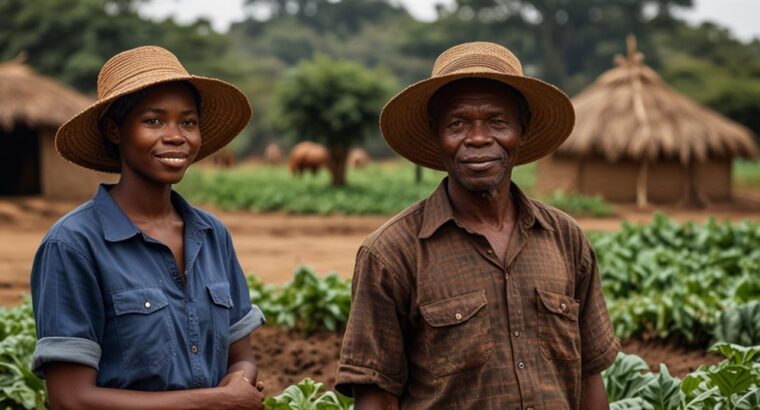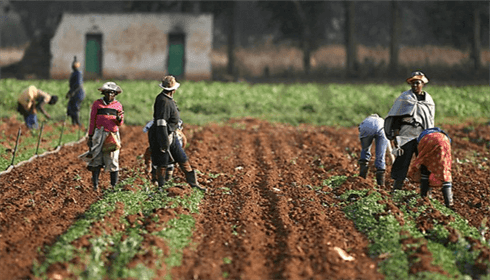Empowering Nigerian Farmers: Government Support and Loan Opportunities

Agriculture plays a pivotal role in Nigeria’s economy, employing a significant portion of the population and contributing substantially to the nation’s GDP. However, many farmers, both aspiring and established, face financial constraints that hinder their ability to expand and optimize their agricultural operations. To bridge this gap, the Nigerian government has introduced various support programs and loan schemes designed to enhance agricultural productivity and sustainability.
Whether your goal is to launch a farming business, cultivate an oil palm plantation, or operate a poultry farm, government-backed financial aid can be instrumental in achieving success. This article explores key government initiatives, how to access these funding opportunities, and essential steps to establishing a profitable farm in Nigeria.
Why Government Support is Essential for Nigerian Farmers
Farming in Nigeria comes with distinct challenges, such as limited access to quality inputs, high operational costs, and market instability. Government loans and support initiatives help farmers overcome these obstacles by offering:
- Low-interest financing options.
- Access to high-quality seeds, fertilizers, and agricultural machinery.
- Training programs focused on modern and sustainable farming techniques.
- Insurance schemes to mitigate financial risks in agriculture.
Key Government Support Programs for Farmers
1. Anchor Borrowers’ Program (ABP)
Launched by the Central Bank of Nigeria (CBN), the Anchor Borrowers’ Program is designed to boost agricultural output by providing financial aid and essential inputs to smallholder farmers. The scheme supports a variety of crops, including rice, maize, and oil palm.
Eligibility:
-
- Smallholder farmers across Nigeria.
- Farmers engaged in cultivating priority crops.
2. Commercial Agriculture Credit Scheme (CACS)
This initiative offers long-term credit facilities to medium and large-scale farmers at single-digit interest rates. It is particularly beneficial for those involved in capital-intensive ventures like oil palm plantations.
Application Process:
-
- Develop a comprehensive business plan detailing your agricultural project.
- Submit an application through a participating commercial bank.
3. Nigeria Incentive-Based Risk Sharing System for Agricultural Lending (NIRSAL)
NIRSAL aims to encourage banks to lend to farmers by reducing the risks associated with agricultural financing. The program offers credit guarantees, making it easier for farmers to secure loans.
Benefits:
-
- Access to affordable loans.
- Training programs on best agricultural practices.
- Insurance protection for farming investments.
Financing Opportunities for Specific Farming Ventures
Establishing an Oil Palm Plantation
Nigeria has a thriving market for palm oil and its by-products, making oil palm farming one of the most lucrative agribusiness opportunities. Government programs such as CACS and the Anchor Borrowers’ Program provide funding to help farmers develop and expand their oil palm plantations.
Steps to Start an Oil Palm Plantation:
- Conduct a feasibility study to determine the best location and soil type.
- Source high-quality seedlings from reputable suppliers.
- Apply for government loans through commercial banks or agricultural offices.
- Implement best farming practices for planting, irrigation, and harvesting.
Starting a Farm in Nigeria with Government Support
From poultry and fish farming to large-scale crop production, government-backed loans can provide essential capital for land acquisition, equipment, and operational costs.

Government Loans and Support for Nigerian Farmers
How to Get Started:
- Choose a profitable farming niche based on market demand (e.g., poultry, cassava, oil palm).
- Develop a detailed business plan covering goals, financial projections, and capital requirements.
- Register your farm with the Corporate Affairs Commission (CAC) to enhance credibility.
- Apply for loans through programs like NIRSAL or the CBN Agricultural Credit Scheme.
- Take advantage of government training programs to improve productivity and efficiency.
Partnering with Reliable Agricultural Suppliers
Choosing the right agricultural input suppliers is critical to farming success. Companies like Quemems Farms provide high-quality seeds, fertilizers, and poultry feeds, ensuring that farmers have access to the best resources for productivity.
READ MORE: A Comprehensive Guide to Sustainable Farming in Nigeria
Services Offered by Quemems Farms:
- Sale of certified oil palm seedlings.
- Supply of poultry feeds and veterinary products.
- Agricultural consultancy services for aspiring and established farmers.
Tips for Securing Government Loans Successfully
- Develop a Strong Business Plan: Clearly outline your farming activities, financial needs, and repayment strategy.
- Maintain Accurate Records: Proper bookkeeping strengthens your loan application.
- Join Agricultural Associations: Membership in recognized farming associations can improve your chances of loan approval.
- Stay Updated: Regularly monitor government announcements and new agricultural policies.
Conclusion
Government support and loan schemes are key drivers of agricultural success in Nigeria. By leveraging these opportunities, farmers can scale their businesses, improve productivity, and contribute to national food security. Additionally, collaborating with reputable suppliers like Quemems Farms can further enhance your farming success.
By taking advantage of available resources and staying informed about new agricultural initiatives, you can establish a thriving farming enterprise in Nigeria.

Leave your comment